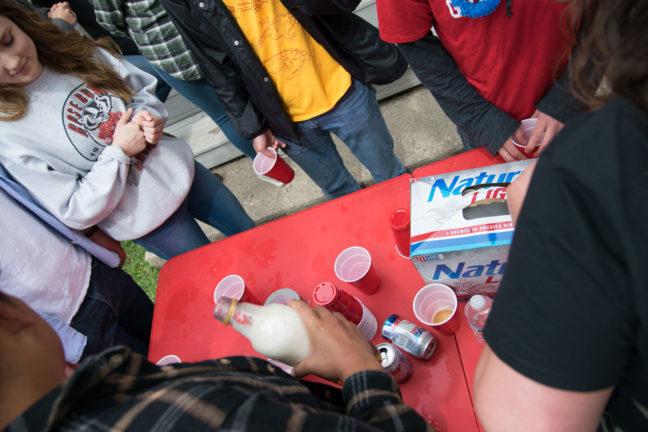Game day in Madison, from the relatively biased point of view of a student obviously rooting for the Badgers and convinced that the University of Wisconsin is the single best place to go to college, is unparalleled on any other campus. State street is swamped by crowds adorned in red and white, and “Jump Around” echoes out at tailgates across the city as fans wait for the golden gates of Camp Randall to be unchained so they can assume the prime position for watching the football team destroy whatever team is unlucky enough to play them at home.
Game day traditions (think beer pong at obscenely early hours of the morning and wearing far too few articles of clothing to games with a high temperature of 50 degrees) are something that many students take for granted. In fact, many alumni look back at the memories they formed on these days as some of the best of their time at UW. However, not all students have access to, or feel included in game day culture, which leads to a perpetuation of a student body very often divided between wealthier students (or students with wealthier parents) and students from working-class families.
Going to college is expensive enough as is, with the price of a degree on a seemingly endless upward slope. For students responsible for paying for their own schooling, housing, groceries and whatever other expenses are thrown their way, spending $200 on season football tickets becomes a much bigger deal than for students whose financial situation is dependent on how much money their parents will put into their checking account, or for whom student loans and rent payments are not looming concerns.
$200 is the bare minimum spent to truly participate in game day culture. This figure does not include the money spent on alcohol for tailgating, food you’re sure to purchase as you’re stumbling to the game after drinking all morning. Nor does it include the team paraphernalia: the $90 UW sweatshirts, the $50 striped overalls, the $60 red converse that would be lucky to survive one game without getting beer spilled all over them. $200 also does not account for the students who are unable to get the magic opening in the lottery to snatch season tickets who end up purchasing tickets on a game to game basis.
For many students, the pressure to attend sporting events while in college is weighed against the financial strain it will cause them, all of the other activities or necessities they will have to give up in order to stand in a stadium and watch four hours of football.
I understand that life isn’t fair, and that sometimes people can’t do or have everything they want to have. But with sports, especially football, being such a large part of the student culture at UW, the inability to participate leads to a group of students left on the outside looking in at their peers who are able to create and be a part of this culture.
Game day culture and its focus on excessive alcohol consumption also marginalizes the students on campus who choose not to drink. Saturdays in Madison turn into drinking extravaganzas: tailgating in the morning, coasting through the game, and immediately resuming drinking afterwards.
No one is claiming that it’s mandatory to show up to Camp Randall completely blasted, or that you have to party until the wee hours of the morning following the game, but realistically, not many people want to be sober while standing in the middle of a sea of intoxicated students for hours on end or be the friend who decides to call it an early night.
Game day is certainly an experience, whether you are participating in it or simply wading through the throngs of avid badger fans to get to work or grab a coffee or do whatever else needs to be done on Saturday afternoon.
For students who either cannot afford to participate or feel uncomfortable doing so, the crowds of people cheering on UW are not nearly as appealing as they are for others.
Aly Niehans (aniehans@badgerherald.com) is a sophomore majoring in international studies and intending to major in journalism.


